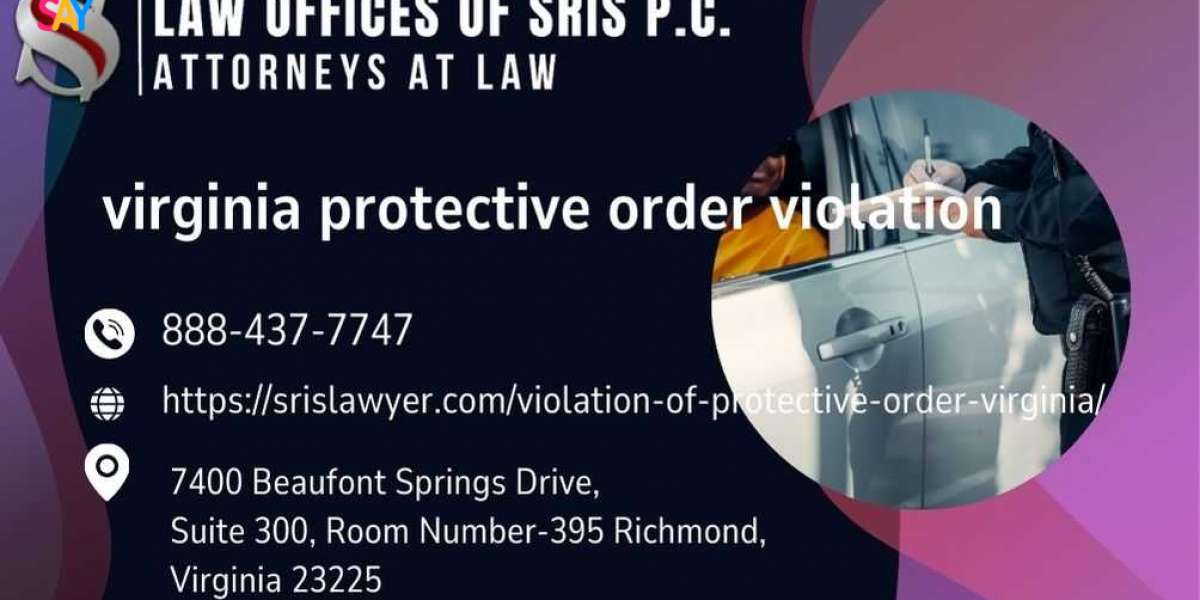Introduction:
Protective orders are essential tools designed to provide safety and security for individuals who may be facing threats, harassment, or violence. In Virginia, violating a protective order is a serious offense with significant legal consequences. This guide provides an overview of Virginia protective order violation, what constitutes a violation, the penalties involved, and the steps to take if you or someone you know is involved in such a situation.
1. What is a Protective Order in Virginia?
A protective order, commonly known as a restraining order, is a legal document issued by a court to protect individuals from harm or harassment. Protective orders are often issued in cases of domestic violence, stalking, or other threatening behavior.
There are three main types of protective orders in Virginia:
- Emergency Protective Orders (EPO): Issued immediately by law enforcement or a magistrate for up to 72 hours.
- Preliminary Protective Orders (PPO): Issued by a court for up to 15 days or until a hearing is held.
- Permanent Protective Orders: Issued after a court hearing, lasting up to two years and renewable if necessary.
These orders can include various restrictions, such as prohibiting contact, requiring the offender to stay away from specific locations, and surrendering firearms.
2. What Constitutes a Violation of a Protective Order?
Violating a protective order occurs when an individual knowingly breaches any of the terms outlined in the order. Common violations include:
- Contacting the protected person through phone, text, email, or social media.
- Approaching or being physically near the protected individual, their residence, workplace, or other designated locations.
- Committing further acts of violence, harassment, or threats.
- Failing to comply with conditions, such as attending court-mandated counseling or surrendering firearms.
Even indirect actions, such as asking a third party to contact the protected individual, can be considered a violation.
3. Legal Consequences of Violating a Protective Order in Virginia
Virginia protective order violation very seriously. Depending on the nature of the violation, the penalties may include:
- Class 1 Misdemeanor:
- Up to 12 months in jail.
- Fines up to $2,500.
- Mandatory completion of counseling or intervention programs.
- Class 6 Felony (for certain violations, such as stalking, committing violence, or repeated offenses):
- 1 to 5 years in prison.
- Fines up to $2,500.
- Additional Consequences:
- A permanent criminal record that can affect employment and housing opportunities.
- Possible loss of firearm rights.
- Enhanced penalties for repeat violations or violations involving violence.
4. What to Do If You Are Accused of Violating a Protective Order
If you have been accused of violating a protective order, it is essential to act immediately and carefully:
- Understand the Allegations: Review the terms of the protective order and the specific accusations against you.
- Avoid Further Contact: Refrain from any actions that could be perceived as a violation.
- Seek Legal Counsel: Contact an experienced criminal defense attorney to guide you through the legal process and build your defense.
- Gather Evidence: Document any evidence that may support your case, such as communication records or witness testimonies.
- Attend Court Hearings: Failure to appear in court can result in additional penalties.
5. What to Do If Someone Violates Your Protective Order
If you are the protected party and the order is violated:
- Contact Law Enforcement: Report the violation immediately to the police.
- Document the Incident: Keep records of the violation, including dates, times, and any evidence (e.g., messages or photographs).
- File a Complaint: Work with your attorney to ensure the violation is brought to the attention of the court.
- Seek Additional Protection: Request a modification or extension of the protective order if necessary.
6. Tips for Preventing Violations
- For individuals under a protective order: Clearly understand the terms and avoid any actions that may inadvertently breach the order.
- For protected parties: Maintain clear boundaries and avoid engaging with the other party, even if they attempt contact.
7. Conclusion
Protective orders are crucial for ensuring safety, and any violations are treated with strict penalties in Virginia. Understanding the terms of a Virginia protective order violation and the legal implications of violating one is essential for both parties involved. If you face a violation—either as the accused or the protected party—seeking legal assistance and taking prompt action can significantly impact the outcome. With the right approach, you can navigate this challenging situation while prioritizing safety and compliance with the law.




